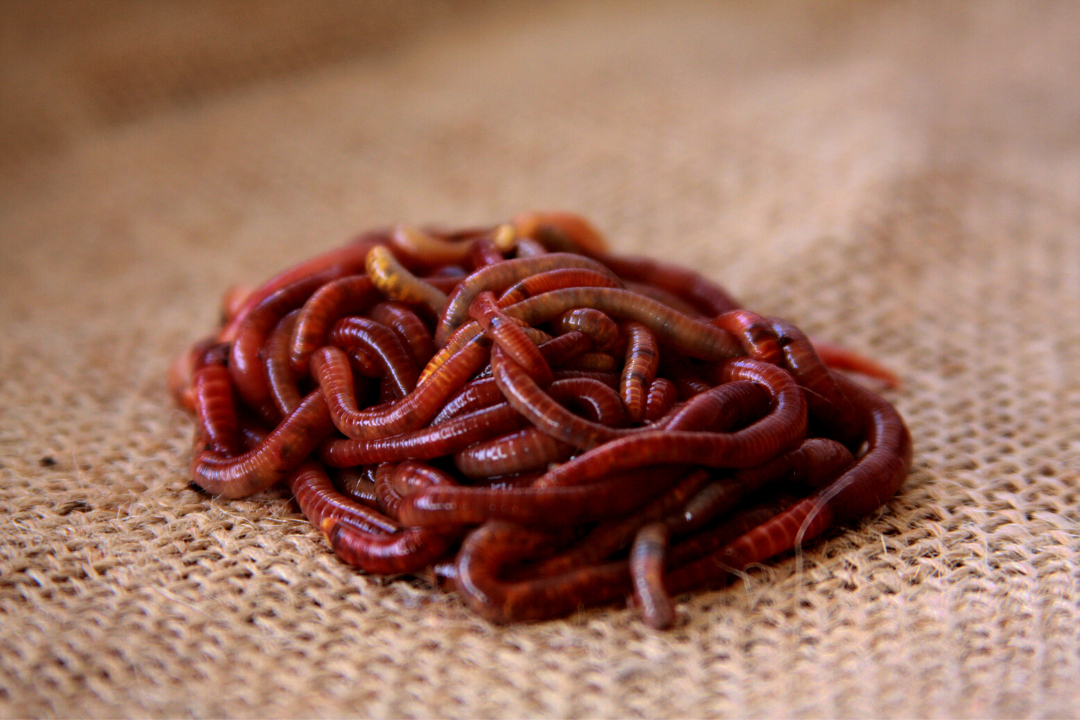The Extraordinary World of Red Wigglers: Increase Your Soil Fertility Today
These little yet effective microorganisms change organic waste right into useful worm spreadings, significantly enhancing soil health and advertising sustainable techniques. As we explore the benefits of vermicomposting and the sensible actions to produce an effective worm container, the prospective impact of these worms on your horticulture success becomes increasingly apparent.
Understanding Red Wigglers
Red wigglers, clinically called Eisenia fetida, are a varieties of earthworm that play a crucial function in boosting dirt fertility. These worms thrive in organic-rich environments, such as compost heap and decaying plant material, where they eat organic waste and secrete nutrient-dense spreadings. Their one-of-a-kind composition, including a segmented body and a clitellum, allows them to duplicate rapidly and successfully process huge quantities of raw material.

The eco-friendly significance of red wigglers prolongs beyond plain waste processing; they contribute to the dirt food internet, promoting a diverse area of microbes that even more boost dirt wellness. Understanding the biology and habits of red wigglers is essential for using their full potential in sustainable agriculture and horticulture techniques.
Advantages of Vermicomposting
(Red Wiggler Express)Utilizing the power of red wigglers via vermicomposting offers countless benefits that considerably boost dirt health and wellness and fertility. Among the key advantages is the production of nutrient-rich worm castings, which are a superb natural plant food. Red Wiggler Express. These castings have essential nutrients like nitrogen, phosphorus, and potassium, promoting durable plant development and improving plant yields
The existence of worm spreadings enhances soil appearance, allowing for far better water retention and drain. Red wigglers aid damage down organic matter, increasing decomposition and reusing nutrients back right into the soil.
Vermicomposting likewise fosters microbial activity, which is essential for a healthy dirt ecological community. Beneficial microbes prosper in the existence of worm spreadings, aiding in the malfunction of organic materials and improving vitamins and mineral schedule to plants.
Lastly, vermicomposting works as a reliable waste monitoring service, decreasing garbage dump waste by recycling cooking area scraps and various other organic products. This not only adds to ecological sustainability but additionally advertises a round economic climate within horticulture and farming.
Exactly How to Establish Up a Worm Bin
Establishing a worm bin is a straightforward process that can dramatically boost your composting initiatives. Begin by choosing an ideal container, which can vary from a readily readily available worm container to a straightforward plastic or wooden box (Red Wiggler Express). Make certain the container has appropriate air flow; little openings in the lid and sides will facilitate air flow
Next, create a bed linen layer to give a comfortable environment for the red wigglers. This can be made from shredded newspaper, cardboard, or coconut coir, moistened to a damp, sponge-like consistency. Fill the bin to around one-third full with this bed linens material.
Once the bed linen is prepared, it's time to introduce the worms. Red wigglers prosper in natural waste, so location them gently onto the bed linens. Cover the worms with a light layer of added bed linen to aid them accommodate.
Feeding Your Red Wigglers
Supplying the best food for your red wigglers is essential for their wellness and the efficiency of your composting system. Red wigglers flourish on a diverse diet, mainly including natural materials such as fruit and veggie scraps, coffee premises, and shredded paper. These products not just give vital nutrients yet additionally add to the microbial activity in the worm container, which is critical for the worms' digestion.
It is very important to stay clear of specific foods, such as dairy products, oils, and meats, as these can attract insects and produce unpleasant smells. Furthermore, citrus peels and excessively zesty foods must be restricted because of their possible to harm the worms. A balanced method to feeding entails keeping an eye on the quantity of food introduced to the bin, making sure that it is consumed within a sensible timespan to prevent excess waste accumulation.
To promote optimal food digestion, it is useful to chop or shred larger food products prior to including them to the bin. This method raises the surface area for microbial action, assisting in quicker decay and improving the total effectiveness of your composting system. Regularly observing the worms' feeding behaviors will certainly help you adjust their diet plan as necessary.
Making Use Of Worm Spreadings in Your Yard

(Red Wiggler Express)Incorporating worm spreadings right into your garden can be achieved by mixing them into the dirt or utilizing them as a leading dressing. The slow-release nature of these castings ensures that nutrients are offered to plants over an extensive period, reducing the need for artificial plant foods. Additionally, worm go to this site castings include useful microorganisms that promote healthy and balanced soil communities, boosting the general strength of your yard.
To take full advantage of the benefits, aim to use around one part worm castings to 3 parts soil in your growing beds. Normal applications can result in improved crop returns and healthier plants, making worm castings a vital resource for both newbie and seasoned gardeners alike. By using this natural amendment, you can grow a thriving garden while adding to sustainable horticulture techniques.
Verdict
In verdict, red wigglers exhibit the crucial duty of vermicomposting in enhancing soil fertility. Their capacity to transform organic waste right into nutrient-rich castings considerably improves dirt framework and sustains microbial variety.